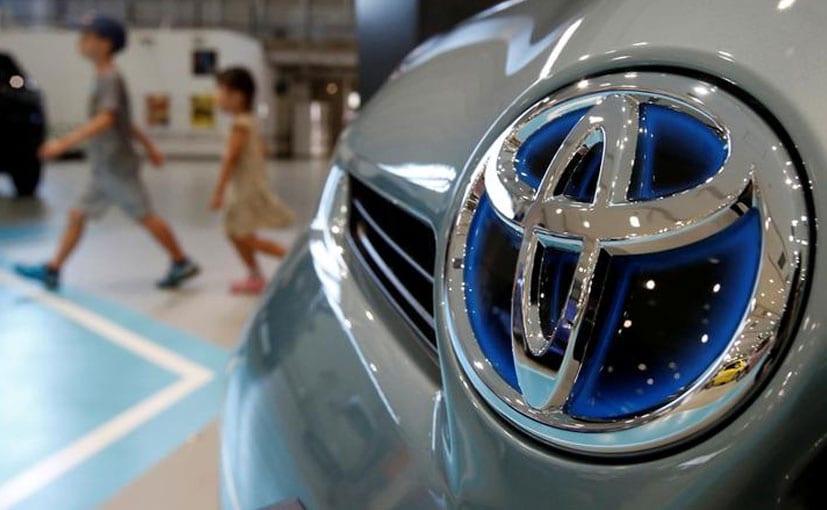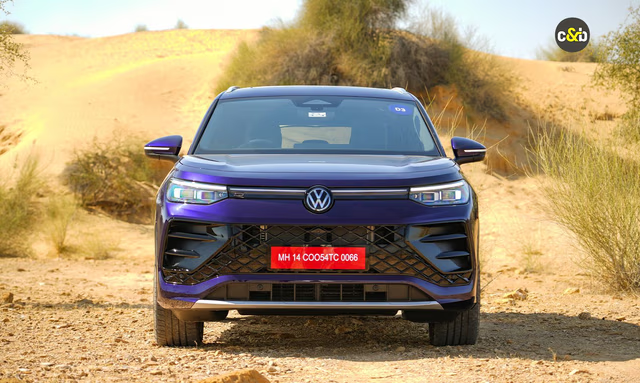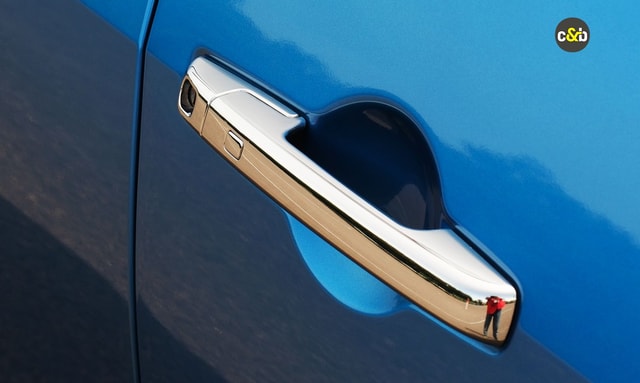Toyota Gears Up Its First EV With Safer, Longer-Lasting Battery

Toyota Motor Corp, a late-comer to the battery electric vehicle (BEV) market, is weaving in all efforts to make sure its first mass-market model is safer and lasts longer than rivals' products when it goes on sale later this year. BEVs have grown in popularity globally, but some consumers have been put off by EV battery-related fire risks and rapid degradation. General Motors and Hyundai Motor were forced last year to recall EVs, carrying batteries manufactured by LG Energy Solution, after reports of fires.
"We focused on balancing three factors: cruising range, battery degradation and charging speed," Masaya Yamamoto, a project manager at Toyota, said at a test-drive event for the bZ4X sport utility vehicle (SUV) prototype last week.
BEVs typically take hours to charge, and using quick-charging methods often cause the battery's cells to heat up, leading to degradation. That, in turn, reduces cruising range over time, hurting a vehicle's resale value.
Toyota said its batteries, developed with Panasonic Corp, contain a special coolant that does not conduct electricity easily. Battery packs are also structured to keep the cells and coolant separated in case of a leak.
This and other innovations mean the new BEV series' batteries would retain more than 90% of their capacity after a decade, Toyota said.
For consumers in Japan, where EVs have been slow to take off, Toyota is considering offering the EVs only through "subscription" - a bid to address worries over battery life and resale value. The subscription fee would cover the cost of maintenance and battery replacement among other features.
Toyota has said it would start selling the SUV model in Japan and other major markets in mid-2022.
Toyota has set a goal of selling 3.5 million BEVs annually by 2030 through an 8 trillion yen ($70 billion) investment to electrify its vehicles.
(This story has not been edited by NDTV staff and is auto-generated from a syndicated feed.)
Latest News
 Seshan Vijayraghvan | Feb 4, 2026Skoda Kylaq Crosses 50,000 Units Sales MilestoneThe Kylaq has been the brand’s best-selling car, which has led to Skoda Auto India’s best-ever sales performance in 2025.1 min read
Seshan Vijayraghvan | Feb 4, 2026Skoda Kylaq Crosses 50,000 Units Sales MilestoneThe Kylaq has been the brand’s best-selling car, which has led to Skoda Auto India’s best-ever sales performance in 2025.1 min read Seshan Vijayraghvan | Feb 4, 2026Volkswagen Tayron R-Line’s Pre-Bookings Open For Rs. 51,000Customers can pre-book the SUV for a token of Rs. 51,000; however, the price announcement will take place sometime later in February 2026.1 min read
Seshan Vijayraghvan | Feb 4, 2026Volkswagen Tayron R-Line’s Pre-Bookings Open For Rs. 51,000Customers can pre-book the SUV for a token of Rs. 51,000; however, the price announcement will take place sometime later in February 2026.1 min read car&bike Team | Feb 4, 2026Audi India Adds ‘My Auras’ In-Car Experience ModesAvailable for select models, the feature syncs the mood lighting, music, air conditioning, seat heating/ventilation and massage functions based on the selected mode.1 min read
car&bike Team | Feb 4, 2026Audi India Adds ‘My Auras’ In-Car Experience ModesAvailable for select models, the feature syncs the mood lighting, music, air conditioning, seat heating/ventilation and massage functions based on the selected mode.1 min read car&bike Team | Feb 4, 2026Suzuki Access ABS Launched At Rs. 92,328The Suzuki Access ABS is now the most-affordable two-wheeler with single-channel ABS on sale in India.2 mins read
car&bike Team | Feb 4, 2026Suzuki Access ABS Launched At Rs. 92,328The Suzuki Access ABS is now the most-affordable two-wheeler with single-channel ABS on sale in India.2 mins read car&bike Team | Feb 4, 2026Nissan Gravite MPV India Debut On February 17Set to be underpinned by Renault-Nissan’s CMF-A platform, the Gravite will share its underpinnings with the Renault Triber.1 min read
car&bike Team | Feb 4, 2026Nissan Gravite MPV India Debut On February 17Set to be underpinned by Renault-Nissan’s CMF-A platform, the Gravite will share its underpinnings with the Renault Triber.1 min read car&bike Team | Feb 3, 2026China Mandates Fitting of Mechanical Door Handles On New Cars From 2027Vehicles already on sale to be given an additional 2 years to conform to the new norms.2 mins read
car&bike Team | Feb 3, 2026China Mandates Fitting of Mechanical Door Handles On New Cars From 2027Vehicles already on sale to be given an additional 2 years to conform to the new norms.2 mins read
 Bilal Firfiray | Feb 4, 2026Volkswagen Tayron R-Line Review: Sensible Flagship For IndiaVolkswagen has introduced a made-in-India flagship SUV that offers space, comfort, performance, and German driving finesse in a practical three-row package. But is the Tayron R-Line good enough?6 mins read
Bilal Firfiray | Feb 4, 2026Volkswagen Tayron R-Line Review: Sensible Flagship For IndiaVolkswagen has introduced a made-in-India flagship SUV that offers space, comfort, performance, and German driving finesse in a practical three-row package. But is the Tayron R-Line good enough?6 mins read Preetam Bora | Feb 2, 2026TVS NTorq 150 Road Test Review: Bigger, Better & More Efficient!We test the new TVS NTorq 150 out in the real world to get a sense of what it offers in terms of performance, dynamics and fuel economy.7 mins read
Preetam Bora | Feb 2, 2026TVS NTorq 150 Road Test Review: Bigger, Better & More Efficient!We test the new TVS NTorq 150 out in the real world to get a sense of what it offers in terms of performance, dynamics and fuel economy.7 mins read Bilal Firfiray | Jan 21, 2026Tata Punch Facelift Review: New Turbo Engine; Same Old SoulWith the update, the Tata Punch facelift retains its character of being a healthy runabout, which is perfect for Indian roads. But have these changes made it any better?7 mins read
Bilal Firfiray | Jan 21, 2026Tata Punch Facelift Review: New Turbo Engine; Same Old SoulWith the update, the Tata Punch facelift retains its character of being a healthy runabout, which is perfect for Indian roads. But have these changes made it any better?7 mins read Amaan Ahmed | Jan 17, 2026Bajaj Chetak C25 First Ride Review: Basic, Likeable E-Scooter For First-Time RidersThe Chetak C25, in quite a few ways, is poles apart from the larger and more powerful 30 and 35 Series models, but in its mannerisms, it is very much a Chetak.8 mins read
Amaan Ahmed | Jan 17, 2026Bajaj Chetak C25 First Ride Review: Basic, Likeable E-Scooter For First-Time RidersThe Chetak C25, in quite a few ways, is poles apart from the larger and more powerful 30 and 35 Series models, but in its mannerisms, it is very much a Chetak.8 mins read Bilal Firfiray | Jan 9, 2026Toyota Urban Cruiser Hyryder: 10,000 km Long-Term ReviewAfter spending over three months and 10,000 km with the Toyota Urban Cruiser Hyryder Hybrid, we were impressed by its real-world mileage, seamless hybrid, practical comfort, and Toyota reliability. Is it the best C-SUV then?5 mins read
Bilal Firfiray | Jan 9, 2026Toyota Urban Cruiser Hyryder: 10,000 km Long-Term ReviewAfter spending over three months and 10,000 km with the Toyota Urban Cruiser Hyryder Hybrid, we were impressed by its real-world mileage, seamless hybrid, practical comfort, and Toyota reliability. Is it the best C-SUV then?5 mins read







































































































































